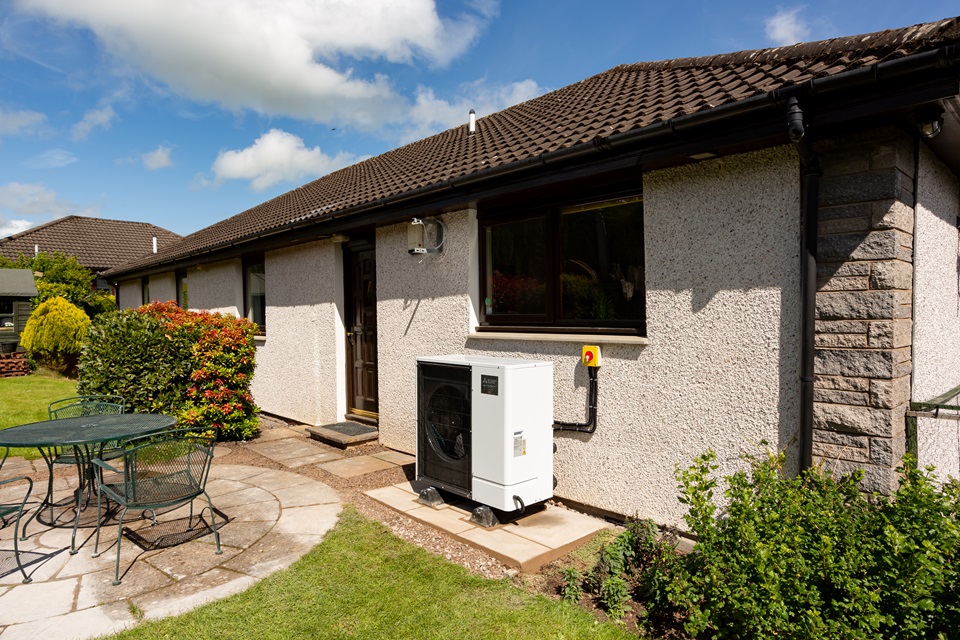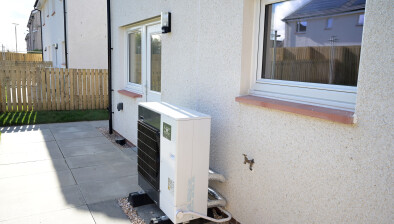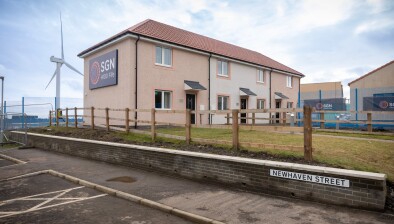Concerns over ‘missed opportunity’ as Heat in Buildings Bill delayed

Housing and energy campaigners have warned that Scotland risks falling behind on climate and fuel poverty targets after the Scottish Government confirmed it will not introduce its long-awaited Heat in Buildings Bill during the current parliamentary session.
Citing delays to the UK Government’s Warm Homes Plan and uncertainty over energy costs, housing secretary Màiri McAllan said she would not ask the Scottish Parliament to consider such an important bill, with little time and without a full understanding of the UK policy context.
The decision has prompted sharp criticism from the Existing Homes Alliance, which said the repeated delays mean Parliament no longer has sufficient time to properly scrutinise and strengthen the legislation.
“This critical legislation has the potential to transform lives and communities across Scotland, cutting fuel poverty and climate emissions, whilst stimulating economic growth and job creation,” said co-director Gillian Campbell. “But as currently drafted, the bill will not drive the scale of activity needed to upgrade Scotland’s homes and meet climate change and fuel poverty targets.”
The Alliance is calling on the next Scottish Government, elected in 2026, to deliver a clear route map to warm, healthy homes by 2045, backed by effective regulations and multi-year funding.
Ms Campbell stressed the need to break down barriers preventing vulnerable households from accessing energy efficiency upgrades and clean heating, warning: “It’s been over four years since the Heat in Buildings Strategy was published – it’s high time we started seeing action or Scotland is going to be left behind.”
Ms McAllan reaffirmed the Scottish Government’s commitment to decarbonising buildings by 2045 in a way that does not worsen fuel poverty, announcing new grant support of up to £7,500 for homeowners, rising to £9,000 in island and remote rural areas, to incentivise connections to local heat networks.
The housing secretary also said the government intended to bring forward legislation as early as possible in the next parliamentary session, subject to the outcome of the 2026 election and clarity on the UK Government’s position. A draft Buildings (Heating and Energy Performance) and Heat Networks (Scotland) Bill has been published to give clarity to households and investors on future plans for legislation.
Màiri McAllan said: “Decarbonising how we heat our homes and buildings is a vital step in our efforts to tackle climate change. We must take action and in a way that does not worsen fuel poverty. The Scottish Government is fully committed to this by 2045, as set out in our draft Climate Change Plan.
“We have always been clear that our plans depend on essential clarity from the UK Government, but repeated delays to their Warm Homes Plan have left key questions unanswered – particularly on how they intend to make the switch to clean heat more affordable by reducing the cost of electricity.
“This is critical in ensuring decarbonising homes does not exacerbate fuel poverty at a time of spiralling energy bills.
“Ultimately, it is perverse that Scottish Ministers should be in the dark about plans related to Scotland’s own energy resources. If we had all the powers of a normal country – including over our own energy resources and market – we would not be in this position.
“In the meantime, we are determined to continue to press ahead with our existing decarbonisation agenda including developing heat networks as a significant investment proposition and viable heating source for households. Therefore, I am pleased to confirm the extension of grant funding for households to connect to local district heat networks, bringing it into line with grants available to install heat pumps.”
Morag Watson, director of onshore at Scottish Renewables, described the lack of progress as “deeply disappointing,” urging both governments to treat heat decarbonisation with the priority it deserves. She said publication of draft legislation would be “small comfort” to investors, and called for full implementation of the Heat Networks (Scotland) Act 2021 as a foundation for future policy.
Consumer Scotland chief executive Sam Ghibaldan warned that what matters now is practical action to help households decarbonise. He highlighted the need for financial incentives and consumer protections to build confidence in the green heating market, stressing that “appropriate support and information” will be vital to ensure energy security and lower bills in the long term.

















